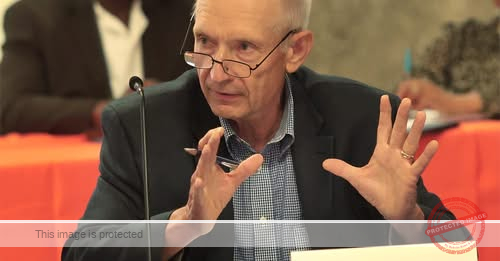
Indiana’s revenue forecast projected a $2 billion shortfall for the next budget cycle, according to new data presented at the State Budget Committee meeting Wednesday.
The current budget cycle for the 2025 fiscal year is also short by an estimated $400 million, but the state can rely on reserves to cover the shortfall.
After the meeting, budget architects Sen. Ryan Mishler, R-Mishawaka, and Rep. Jeff Thompson, R-Lizton, said “everything is on the table” when it comes to budget cuts, according to the Indiana Capital Chronicle. Thompson said increasing “sin taxes” — on cigarettes, alcohol and gaming — could be considered.
The Indiana Chamber of Commerce President and CEO Vanessa Green Sinders issued a statement after the forecast calling on the legislature to approve a $2 per pack increase in the cigarette tax.
“We urge lawmakers to put the increase in the state budget – both for the positive impact on the health of Hoosiers who smoke and the additional revenue,” Green Sinders said in the statement. “Indiana proudly has built one of the country’s most competitive business climates. But we also must be willing to identify, discuss and act on difficult matters surrounding the health of Hoosiers — like the adult smoking rate — so we can continue to prosper as citizens and as an economy.”
As House Bill 1001, the two-year state budget, was discussed in the Senate Monday, Senate Democrats proposed 60 amendments. A number of the amendments addressed the cigarette tax, including a $2 per pack raise on the cigarette tax proposed by Sen. Shelli Yoder, D-Bloomington.
Mishler said Monday the legislature needs “to keep all options open,” but called for the Senate to defeat the amendment, which it did in a voice vote.
Sen. Fady Qaddoura, D-Indianapolis, proposed an amendment to increase the cigarette tax by $1 in 2026 and by $2 in 2027. Qaddoura said the state would see an additional $211 million in revenue in 2026 and more than $300 million in 2027.
The amendment would designate the more than $500 million generated to fund Medicaid, Qaddoura said. The amendment failed in a voice vote.
Qaddoura proposed an amendment to raise alcohol taxes that would, within two years, bring in an additional $128 million in revenue. He also proposed an amendment to increase the gaming tax that would, within two years, bring in an additional $125 million in revenue. All of the amendments failed.
In total, Qaddoura said his three amendments would’ve brought in approximately $600 million in 2026 and approximately $750 million in 2027.
Lake County Councilman Randy Niemeyer, R-Cedar Lake, said he was concerned about raising the cigarette tax because it seems that fewer people are smoking. Raising sin taxes would impact low-income and middle class families, he said.
To address the budget shortfall, Niemeyer said said the state legislature should look at state departments and agencies to see where cuts could be made, similar to the Department of Government Efficiency at the federal level.
“I think they’d be surprised if they did their own form of DOGE, that they’d find quite a lot of room to restructure,” Niemeyer said. “I think the first step is cut your government before you start taxing people.”
DOGE’s claims of savings have been difficult to verify as it has taken credit for axing contracts that have already ended and inflated the value of its cuts, according to a Reuters report.
Porter County Councilman Jeremy Rivas, D-2nd, said the legislature should legalize marijuana to close the revenue shortfall. All the states around Indiana have legalized marijuana in some form, which has brought in revenues for the states, he said.
“It’s high time they legalize marijuana,” Rivas said. “There’s got to be a lot of revenue available or other states wouldn’t do it. It seems we’re missing out.”
Under Senate Bill 1, the property tax relief bill that was signed into law this week, the state has cut funding to local governments by “arguing that their budgets were excessive,” said Lake County Council president Christine Cid, D-East Chicago.
The only way local leaders can offset the impacts of Senate Bill 1 is to consider increasing local income taxes at the county or municipal level, Cid said.
“Ironically, this proposal comes from a party that claims to oppose tax increases,” Cid said. “I urge the state to take a similar approach and identify savings within its own budget. People are tired of being taxed more and more.”
The Indiana Capital Chronicle contributed.
